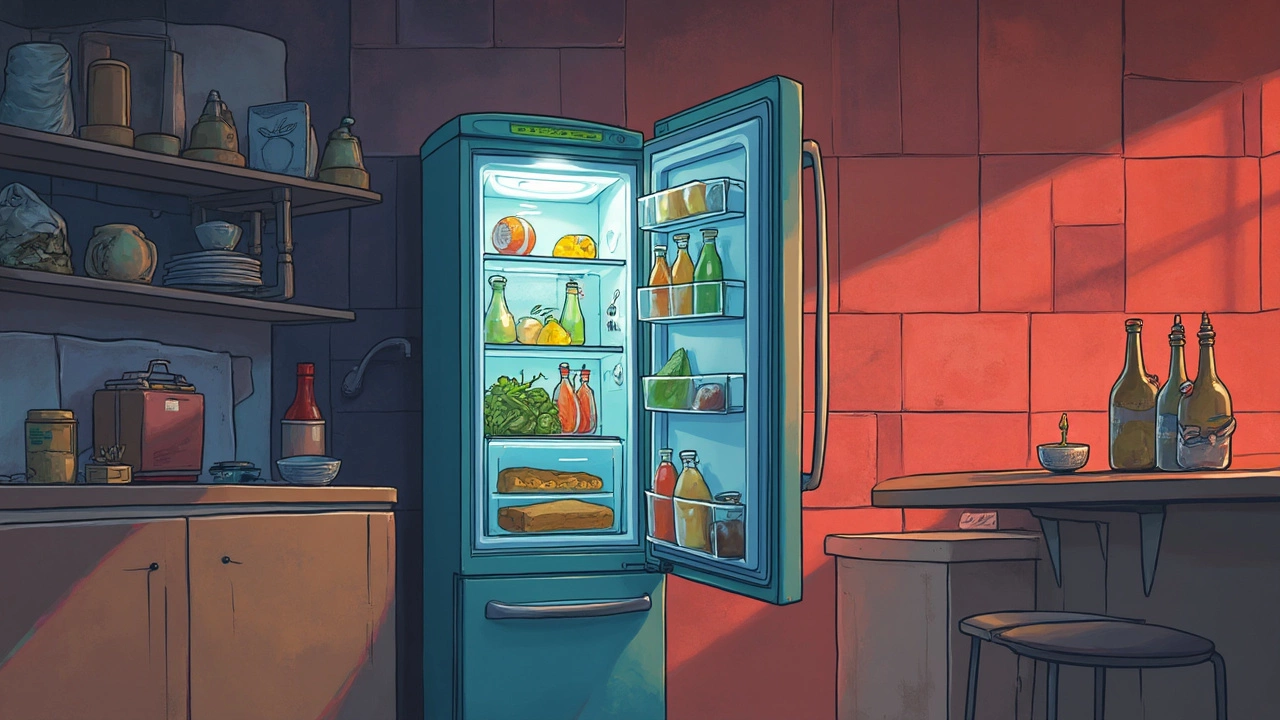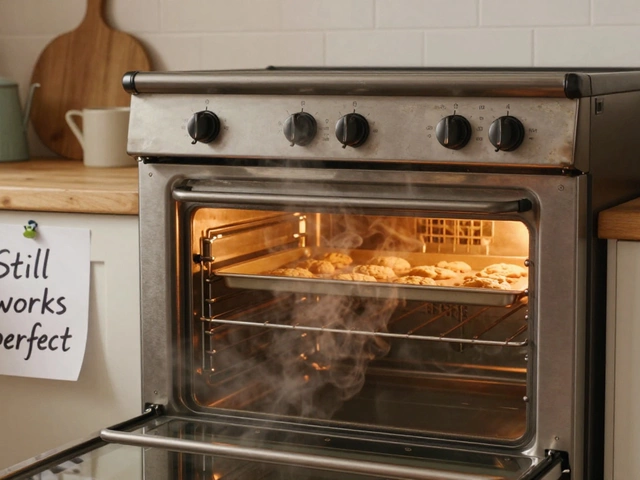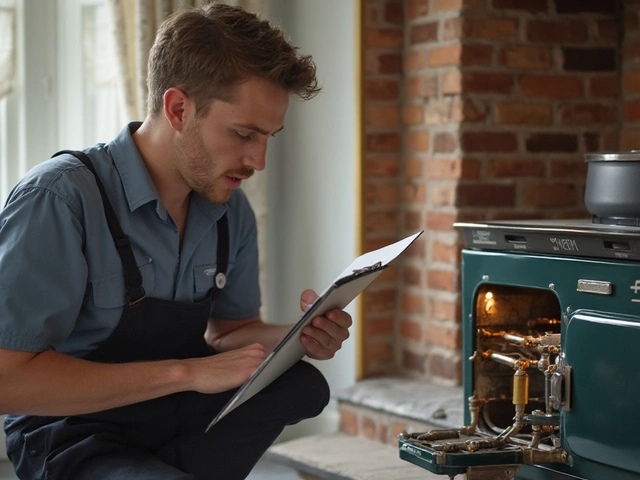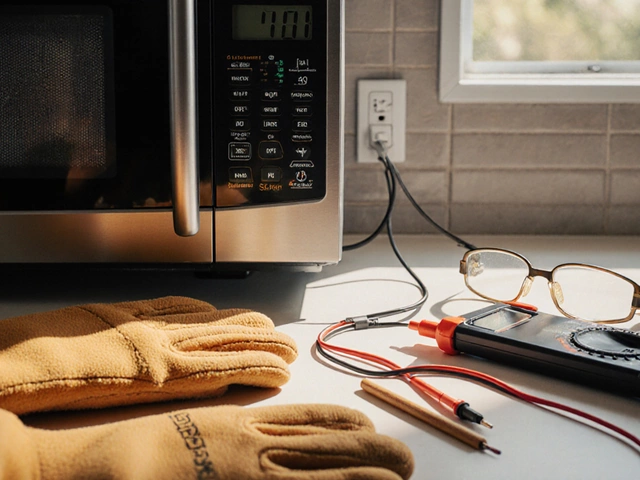Picture this: you open the fridge, hoping to grab a cold drink, and it feels like a sauna in there. Yeah, not cool, literally. Before you start panicking about your grocery bill, you might want to consider if the fridge compressor is the villain of the story. The compressor is like the heart of your fridge—it's what keeps everything nice and chilled.
But how do you know if it’s the culprit behind your fridge's misery? One sure sign is a fridge that isn’t cooling like it used to. Another giveaway might be strange noises, like that unexplained rattling or humming, especially if it's way louder than your usual fridge soundtrack. Sometimes, you might even notice the compressor isn’t running at all. These are all red flags waving at you, whispering, 'Check me out!'
- Understanding the Role of Your Fridge Compressor
- Signs Your Compressor Might Be Failing
- Do-It-Yourself Checks Before Calling a Pro
- When It's Time to Replace the Compressor
- Tips to Prolong Your Compressor's Life
Understanding the Role of Your Fridge Compressor
The fridge compressor might not get the same spotlight as your favorite football player, but it's the MVP when it comes to keeping your food fresh. It's that hard-working part of the fridge that circulates refrigerant through the cooling system. Without it, your fridge is pretty much just a box trying its best to chill.
So, how does this thing really work its magic? Picture a pump, but for gas instead of water. It compresses the refrigerant and then pushes it through the coils on the back of your fridge. This process releases heat and keeps the inside of your fridge nice and cool. According to appliance expert John Carey, "If the compressor stops working, it's like taking the batteries out of your TV remote—nothing will happen until it’s fixed."
If the compressor stops working, it's like taking the batteries out of your TV remote—nothing will happen until it’s fixed.
But that's not all. The compressor also plays a big role in energy efficiency. Fridges are one of the biggest energy users in our homes, and if the compressor is not working correctly, it can cause your fridge to guzzle more electricity than you probably want it to. Keeping an eye on this component can help you save not just your food, but also a good chunk of change on the energy bill.
| Function | Outcome |
|---|---|
| Cooling | Keeps fridge temperature low |
| Efficiency | Helps reduce energy consumption |
The compressor is pretty crucial. Knowing a bit about how it works can be a game-changer when trying to diagnose what's going wrong with your fridge. So the next time your fridge seems off, you might just know where to start poking around. And hey, if you keep your refrigerator happy, it'll keep you happy too, with cold drinks and fresh eats.
Signs Your Compressor Might Be Failing
Let’s say your fridge compressor is acting suspiciously; what do you look for? Keeping an ear out is just wise home maintenance. Ever heard a rattling or buzzing sound from your fridge? Yep, that's often the compressor's way of asking for help. If it starts sounding like a construction site, you might wanna check out what's up.
Another hint something's fishy is your fridge acting more like a heater than a chiller. If food isn’t staying as cool as it should be, the compressor might not be doing its job. Notice this while also seeing a rise in your energy bill? It’s because a struggling compressor often works overtime trying to keep things cold, even if it’s not succeeding.
If your fridge compressor isn’t turning on at all, that’s a major red flag. But before you freak out, check if it’s a electrical issue first—it’s the easier fix. But assuming that wires and power are A-OK, the compressor might just be waving goodbye.
Here's a quick checklist to keep in mind:
- Noise Level: Persistent or unusually loud noises.
- Temperature Changes: Fridge isn't cooling efficiently.
- Energy Use: Sudden spike in electricity bills.
- Compressor Silent: The unit isn't cycling on and off.
These signs are your fridge opening a dialogue—don’t ignore it. Catching a compressor failure early enough might save you a bundle in repairs or even keep you from needing a new fridge altogether.
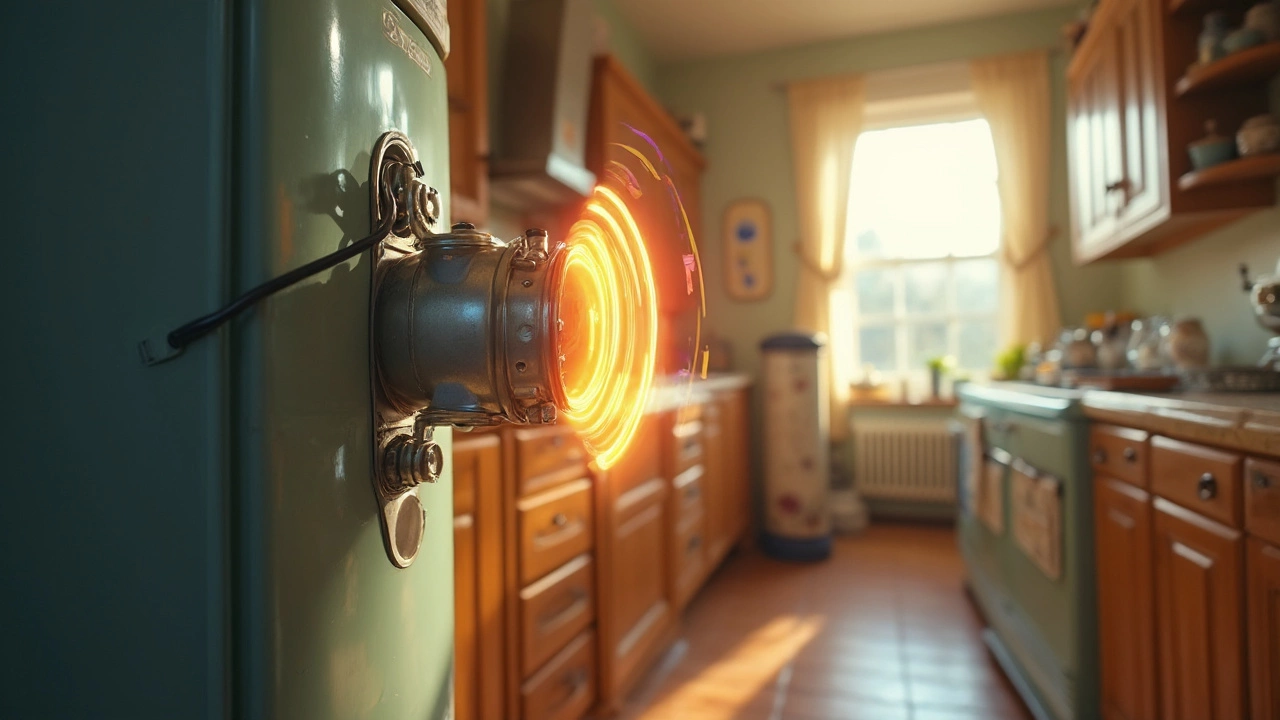
Do-It-Yourself Checks Before Calling a Pro
Alright, so your trusty fridge compressor might be acting up, and you're thinking, 'Do I really need to call in the pros right away?' Not always! There are a few things you can check out on your own before dialing for help. Plus, it's way more satisfying (not to mention cheaper) if you can fix it yourself.
First up, let's check that the fridge compressor is actually running. Listen for a low humming sound—it means the compressor is working hard to keep everything cool. If it's silent as a mouse, you might have found your issue.
Next, take a look at the thermostat settings. Sometimes it’s the simple things that trip us up. Make sure the thermostat is set to a cool, reasonable temperature. If it got knocked to a warmer setting by accident, your fridge isn't going to be too chill.
It's also worth inspecting the back of the fridge. Check if the coils are coated in dust or debris. Dusty coils can make the compressor work overtime, which can lead to burnout. Give those coils a quick vacuum or wipe down for better efficiency.
- Humming but not cooling? Check the fridge and freezer temperatures. If they seem off, adjust the thermostat and give it a few hours to see if it stabilizes.
- No noise at all? Unplug the fridge for about 10 minutes and then plug it back in. This can sometimes reset minor electrical issues.
- Rattling sounds? Make sure the fridge is level. Unbalanced fridges can vibrate, causing weird noises. Adjust the feet if necessary.
Lastly, if you've gone through these checks and nothing seems to work, then it might be time to bring in the experts. At least you tried, right? And now you'll be armed with all the info to tell the repair person exactly what's going on.
When It's Time to Replace the Compressor
So, you’ve done a few DIY tests, and things are not looking good. How do you know it's time to finally throw in the towel and replace that fridge compressor? Well, here’s the lowdown: compressors don’t last forever. If your fridge is more than a decade old, chances are the compressor is nearing the end of its life.
First, think about the symptoms. If you’re seeing frequent overload trips (basically, when the compressor struggles and gives up frequently), it’s a big red flag. Add to that a constantly running compressor or one that doesn't start at all—you might be waking up to the fact that it’s not just a one-off hiccup.
Sometimes you’ll notice frost buildup due to inefficient cooling, or maybe the appliance simply gives up and won’t chill anything at all. Sadly, if your electric bills suddenly skyrocket, that struggling compressor might be drinking up a lot of extra juice as it works overtime. Ouch for the wallet!
- Loud noises: New or increasing grinding or screeching sounds often mean trouble.
- High energy consumption: Check your bills—if your fridge is the only thing that's changed, it could be the compressor.
- Frequent cycling: The fridge turning on/off too much? That's another clue.
If replacing a compressor seems daunting, consider the cost as well. Replacing a compressor can cost anywhere from $300 to $600, depending on your appliance. So, if your fridge is already playing the retirement card and costing you more than what it's worth, sometimes getting a new fridge can be a more economical choice in the long run.
Let's not forget that warranties exist for a reason. If your refrigerator is still under warranty, you might catch a break on replacement costs. Check those warranty papers before giving up on repairs. So there you have it—when your fridge seems like it's on its last legs, use these pointers to figure out if a compressor swap is the way to go.

Tips to Prolong Your Compressor's Life
Keeping your fridge compressor healthy is key to avoiding those frustrating breakdowns. Here’s a handy list of tips to keep that fridge compressor running smoothly for years.
- Regular Cleaning of Coils: Dust bunnies love fridge coils, but they’re bad news for your compressor. Grab a vacuum or coil cleaning brush and give those coils some TLC at least every six months.
- Don't Overload the Fridge: It might be tempting to pack your fridge full, especially after a big grocery haul. But too much stuff can force the compressor to work overtime. Leave room for air to circulate.
- Keep the Temperature Just Right: Set your fridge temperature between 37-40°F (3-4°C). If it’s too cold, the compressor never gets a break. Too warm, and it has to overcompensate.
- Inspect Door Seals: A worn-out seal lets cold air escape. Check it by closing the fridge door over a piece of paper. If you can pull the paper out easily, it’s time to swap that seal.
- Defrost When Needed: Frost build-up can make the compressor work harder than it needs to. If your fridge doesn’t have an auto-defrost feature, do it manually if ice starts getting cozy.
Staying on top of these small chores doesn’t just save the compressor; it keeps your food happier, too. So, roll up those sleeves and give that faithful appliance a little love.

